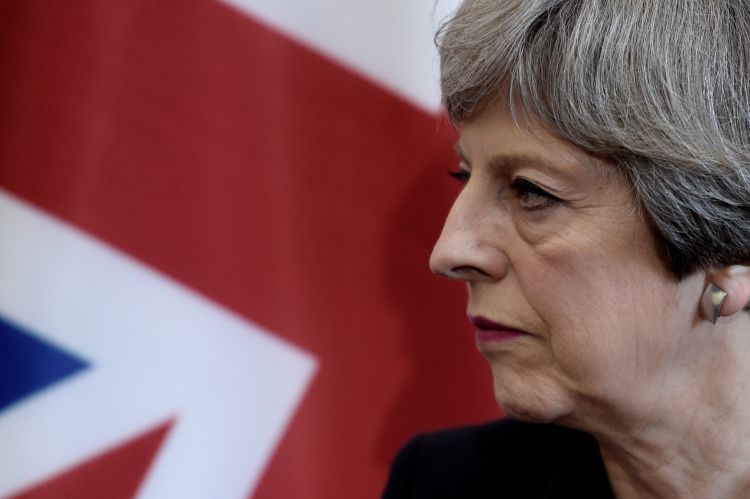Investing in UK equities post-Brexit
How should investors be positioned in the asset class as the Brexit deadline looms?

UK investors typically have significant exposure to domestic equities.
So it stands to reason some clients with be asking their financial adviser what to do about their asset allocation as the uncertainty around the Brexit deadline continues to hit headlines.
Advisers are used to dealing with clients' anxieties about macroeconomic issues but the UK's departure from the EU is closer to home.
Should they continue investing in UK equities as before, or take a little more caution and create a portfolio which is less reliant on UK large, mid or small-caps?
Nick Kissack, portfolio manager, UK equities at Schroders, told FTAdviser: "We remain cognisant of the risk areas within the economy, such as the financial sector, but we continue to focus on finding those dependable high quality business models with attractive returns, strong management teams, and that come at a reasonable valuation."
Read on to find out more about how advisers can help clients to navigate Brexit.
Looming Brexit deadline an opportunity for UK equity investors
Advisers have said clients should be exposed to UK equities as the deadline for the UK’s departure from the EU nears.
According to the latest FTAdviser Talking Point poll, 77 per cent of advisers thought being invested in UK stocks was an opportunity, while a mere 5 per cent said clients should avoid having any exposure to the asset class in portfolios.
But Dennis Hall, chief executive and chartered financial planner at Yellowtail Financial Planning, warned against being too heavily skewed towards UK companies.
"I don’t think any investor should be heavily weighted to the UK regardless of which way the Brexit vote went," he said.
We tend to take a 20 to 30-year view and encourage clients to extend their thinking beyond the short term.
"Clients have not specifically expressed uncertainty about UK equities, we have weaned them away from a UK-centric portfolio bias, and clients tend to have portfolios that are closer to a global market cap-weighted portfolio."
He added: "In any case, we tend to take a 20 to 30-year view and encourage clients to extend their thinking beyond the short term, which also means a large-cap bias isn’t necessary."
The poll results showed only 8 per cent of advisers thought clients should be allocated to UK small-caps, while 10 per cent said they should have exposure to larger UK stocks.
Ken Wotton, manager of the Livingbridge UK Multi Cap Income fund and the UK Micro Cap fund, suggested: "Small and micro-cap companies, which can display more attractive valuations compared to larger cap peers, are potentially well-positioned to mitigate any headwinds as Brexit uncertainties mount.
"Due to their size they can often be quite nimble, and it may be easier for them to react at pace to the risks and opportunities going on around them."
He noted companies of this size often operated in less cyclical areas of the market.
However, Peter Elston, chief investment officer at Seneca Investment Managers, admitted it was "hard to position for Brexit".
"As with the [referendum] vote itself, a negative outcome could see mid-caps sell off more than large-caps, which may well provide a buying opportunity," he said.
The Adviser Centre reported in July the UK market lagged its developed market peers but that larger caps "broadly outperformed mid and smaller cap companies".


CPD: How to help clients position in UK equities for Brexit
Words: Ellie Duncan
Images: Pexels

What approach should advisers help clients to take in their portfolios, given the uncertainty around the terms of Brexit?
At 11pm on 29 March 2019 the UK will wave goodbye to its membership of the European bloc – two years on from the triggering of Article 50 and more than two and a half years since the EU referendum.
With the UK’s departure date looming, the prospect of a ‘no deal’ Brexit, as it has been called, appears to be a strong possibility.
In the coming months, investors may be wondering whether they need to make any adjustments to their portfolios, which are likely to have some exposure to UK equities.
So far, it is the pound which has suffered the most from the vote to leave.
It declined immediately after the referendum result and has not recovered since.
However, UK stockmarkets have been more buoyant.
Many equity managers point to the fact that the constituents of the FTSE 100 rely on the international scale of their business to generate revenues, which have been boosted in turn, by a weaker pound.
The UK has always been a trading nation sensitive to the global economy and the pound a widely traded major global currency.
Andrew Robbens, a UK and European investment specialist at JPMorgan Asset Management, admits: “The potential outcome for the UK relationship with the EU after Brexit is very fluid.”
Ketan Patel, co-manager of EdenTree’s Amity UK fund, observes: “Protracted Brexit negotiations have left UK investors facing a highly uncertain landscape where mixed economic data and ever-escalating geopolitical tensions continue to dominate.”
Difficult decisions
Is there anything advisers can do to help clients position their portfolios in readiness for the UK's departure from the EU, or at least to help ease any client concerns?
As Ryan Hughes, head of active portfolios at AJ Bell, points out, what makes the situation a particular challenge is no-one has any experience of navigating it.
“Without details of what the UK’s future trading arrangement with the EU will be, it is difficult to fully quantify the impact that this will have on the UK economy,” he says.
“We are already seeing the FTSE 100 benefit from weaker sterling, therefore surprising many with the strength of the market, while the UK economy is also proving to be resilient at the present time.”
But he cautions: “Making a decision to position your portfolio for one outcome or another at the present time is very difficult, as the risk of getting it wrong remains high, particularly given the impact of currency moves on asset prices.
“The key for me is to remain well diversified and understand the risks and exposures that are in a portfolio. Given the potential volatility that is likely to come, it is far better to be taking too little risk than too much, not least when you consider just how strong equity markets have been over the past few years.”
Mike Coop, head of multi-asset portfolio management at Morningstar Investment Management Europe, sets out: “There are three key things advisers can do to help clients deal with these high stress periods: first take a long-term view, second focus on valuation, and third, maintain a diversified portfolio.”
Taking the long view
He suggests to investors that the long-term impact of Brexit is limited, though important for the UK economy.
“There are no major changes to macroeconomic policy, such as removing the Bank of England’s independence, changing its inflation target, re-regulating the labour market or imposing controls on the flow of capital,” Mr Coop explains.
“The UK has always been a trading nation sensitive to the global economy and the pound a widely traded major global currency. UK equities are also driven by global factors due to the high proportion of foreign sourced revenues for UK stockmarket companies.”
That is the long-term view taken into account, but Mr Coop also suggests a valuation driven approach “is the best way to deal with” the high level of uncertainty around Brexit.
As he acknowledges: “We don’t know what decisions politicians will make here and in Europe. But we can assess the fair value impact of different Brexit scenarios on UK assets and the pound, and see if current prices already reflect this and whether UK assets look more or less attractive than overseas assets.
“This approach reduces reliance on forecasting the unpredictable and builds in a margin of safety that can reduce the risk of loss.”
Mr Coop’s third suggestion for how advisers should help clients through this period is to construct a diversified portfolio.
Even then, he thinks valuation still matters – “holding higher levels of cash and higher yielding quality fixed income, such as US government bonds, should be considered”, he adds.
Economic data
As Azad Zangana, Schroders’ senior European economist, points out: “The UK economy was supposed to plunge into recession soon after the vote to leave the EU, but the majority of forecasters were wrong.”
However, he explains the economy “slowed sharply” in 2017 and went from being the fastest growing economy in the G7 to the slowest.
He predicts UK growth is likely to be “sluggish” this year, at around 1.4 per cent.
Investors will need to focus on the actual potential repercussions for individual companies rather than tarnishing all those with a domestic focus as a lost cause.
Mr Zangana adds: “With inflation forecast to average 2.6 per cent, the UK will feel like a stagflationary environment for some time.
“As for 2019, the outlook is very uncertain. We assume a transition period will be agreed that preserves the status quo of the single market and customs union membership, but this is unlikely to help growth recover much.”
Deal or no deal?
In the event the UK leaves the EU without a deal in place, what will be the impact on UK equities? Should investors have any allocation to UK companies at all if a ‘no deal’ looks more likely?
Mr Robbens forecasts there will be potential negative impacts on the more domestically-focused stocks in this scenario.
“It is difficult to know what a ‘no deal’ exit will actually mean for domestic equities, although there is likely to be, at least, a short-term headwind for more domestically-focused companies, as was experienced immediately after the referendum,” he acknowledges.
He recalls after the Brexit vote, this actually created opportunities where the market was overly pessimistic on the outlook and he expects a similar situation should there be no deal agreed.
“Investors will need to focus on the actual potential repercussions for individual companies rather than tarnishing all those with a domestic focus as a lost cause,” he adds.
Peter Elston, chief investment officer at Seneca Investment Managers, also sees an opportunity if this is the situation in March next year.
“Assuming that ‘no deal’ is the outcome and that the market is negatively affected, either in the run-up to 29 March 2019 or in the days following it, investors should probably increase exposure to UK equities,” he remarks.
“Any sell-off in the pound or in equities may well have been extreme and thus overdone, making UK companies attractive.”
A no-deal Brexit is likely to further curb growth expectations and therefore the attractiveness of the UK.
Mr Coop goes as far as to say he has a positive view on UK equities “as an unloved, reasonably cheap and fundamentally resilient market, following the recapitalisation of banks after the global financial crisis”.
He notes: “We do see downside risks, but there is a margin of safety, especially on a 10-year plus view.
“It offers better value than a global equity index portfolio and US equities, based on a simple comparison with historic valuation levels as well as our own fundamental-based, fair value models.”
But Louise Dudley, global equities portfolio manager at Hermes Investment Management, proffers slightly more caution when it comes to being exposed to UK equities.
“We continue to be underweight UK equities from a European or global context,” she explains.
“A no-deal Brexit is likely to further curb growth expectations and therefore the attractiveness of the UK.
“Business disruption from technology continues to be a key theme and we believe that the opportunities that are presented by Brexit, including people relocation questions, could lead to more rapid change in digitalisation/automation, optimising manual tasks to seek cost efficiencies and reinventing industries.”
She notes: “Broadly our expectation is that we are likely to see higher costs for businesses, at least in the short term as effort is duplicated (in and out [of] the EU).
“UK businesses that are required to trade with the EU may find the hurdles too great and therefore reduce their need (if possible), or lessen their continental ambition (either raw material sourcing or customer growth).”
Mr Hughes says he does not believe the economic and political fallout that would likely occur if the UK leaves without a deal is justification for clients having no exposure at all to UK stocks.
Little and large
In that case, investors may want to consider where on the market cap spectrum they are invested in UK companies, given that small and mid-caps face more headwinds should the UK’s departure be a bumpy ride.
However, Mr Patel argues: “The prospect of a hard, or no deal, Brexit increases the potential of a rotation into large-cap exporters, which happened in the immediate aftermath of the vote to leave in June 2016.
“This will leave plenty of opportunities for long-term investors in the small and mid-cap arena, where mispricing will manifest – more so if there is a dramatic fall in sterling versus the dollar.”
He confirms: “The traditional view that a falling currency favours large-cap exporters holds true in a wider sense, but less so at a stock level, with plenty of small and mid-cap companies which have a global earnings profile.”
These companies are equally well set to benefit from a falling sterling, Mr Patel comments.
It may prove beneficial, if you do want to have exposure to UK equities, to use an active manager rather than a passive strategy in the coming months, given the wide range of possible outcomes.
Mr Hughes says looking further down the market cap scale, “it is possible that some companies may be relatively immune to the worse effects of Brexit given the market they operate in, but this will very much be seen on a stock specific basis”.
But he also says: “What might prove to be the case is that active managers have the opportunity to position themselves to benefit from a particular company’s situations.
“Therefore, it may prove beneficial, if you do want to have exposure to UK equities, to use an active manager rather than a passive strategy in the coming months, given the wide range of possible outcomes and the different impacts these outcomes will have on different companies.”
There is no right or wrong answer at this stage about how to be positioned in UK equities, but for advisers, talking to clients openly about the possible impact in the short term, particularly if the UK leaves the EU without a deal in place, may help allay any immediate fears.
It is also important to reiterate the long-term view and the client’s own outcomes.
Mr Hughes adds: “While I wish there was a straightforward answer of ‘you should be doing this to your portfolio’, the uncertainties are just too great at the present time and therefore mitigating risk through the old-fashioned approach of diversification across lowly correlated assets is probably a wise one.”
Ellie Duncan is features editor of FTAdviser and Financial Adviser




House View: Outlook for UK equities
The UK is going through a difficult political period following Brexit and the myopia of markets is unearthing good investment opportunities for the long-term investor.
Global asset allocators have been underweight UK equities for a prolonged period and negative sentiment has become highly consensual.
This has also been reflected in the currency markets as sterling has hit trade-weighted lows despite the recent Bank of England (BoE) rate rise.
It's easy to see why global investors have shunned the UK in recent years; when converted to US dollars, the UK market has been a chronic underperformer on the global equity stage.
Brexit is providing various once-in-a-generation opportunities to invest in high quality, best-in-class global corporates that are priced very reasonably relative to peers in other regions.
There are myriad reasons for this, including the heightened volatility of both our politics and our currency, and the risk of a hard Brexit.
But the biggest shift has been the UK’s defensive/value tilt, in a world focused on buying growth.
The UK market earnings has one of the lowest sensitivities to global industrial production, this in a period of synchronised IP recovery. The UK is seen as low growth, value, unsexy.
Global investors have voted with their feet, with a net 42 per cent underweight the asset class earlier this year, according to a Merrill Lynch survey.
So why invest in UK Plc?
Firstly, Brexit is providing various once-in-a-generation opportunities to invest in high quality, best-in-class global corporates that are priced very reasonably relative to peers in other regions.
The relative value opportunity in UK equities, which on many valuation metrics such as dividend yield trades at 20-year lows versus other regions, has seen industrial buyers with long-term horizons taking advantage of this Brexit-induced valuation anomaly.
Given the attractive relative valuation of UK Plc, the UK market is littered with opportunities.
At the current run rate, 2018 will become the largest M&A year in over 20 years for the UK market. Furthermore, UK Plc remains a bastion of corporate governance and capital stewardship, further adding to its attractions as a hunting ground for active managers like ourselves.
Therefore, while considerable uncertainty will remain until the final vote by Parliament at the turn of the year, we shall remain disciplined to our investment approach of ‘quality at a reasonable price’ (QARP); investing in high-quality, well-managed franchises which have proven their ability to outperform across the cycle.
Purchasing these businesses at a reasonable price ensures we retain valuation discipline and don’t overpay for quality.
At present, given the attractive relative valuation of UK Plc, the UK market is littered with opportunities like this; keenly priced cash flow streams, some of which are emerging stronger from difficulty.
Nick Kissack and Bill Casey are fund managers, Europe at Schroders




